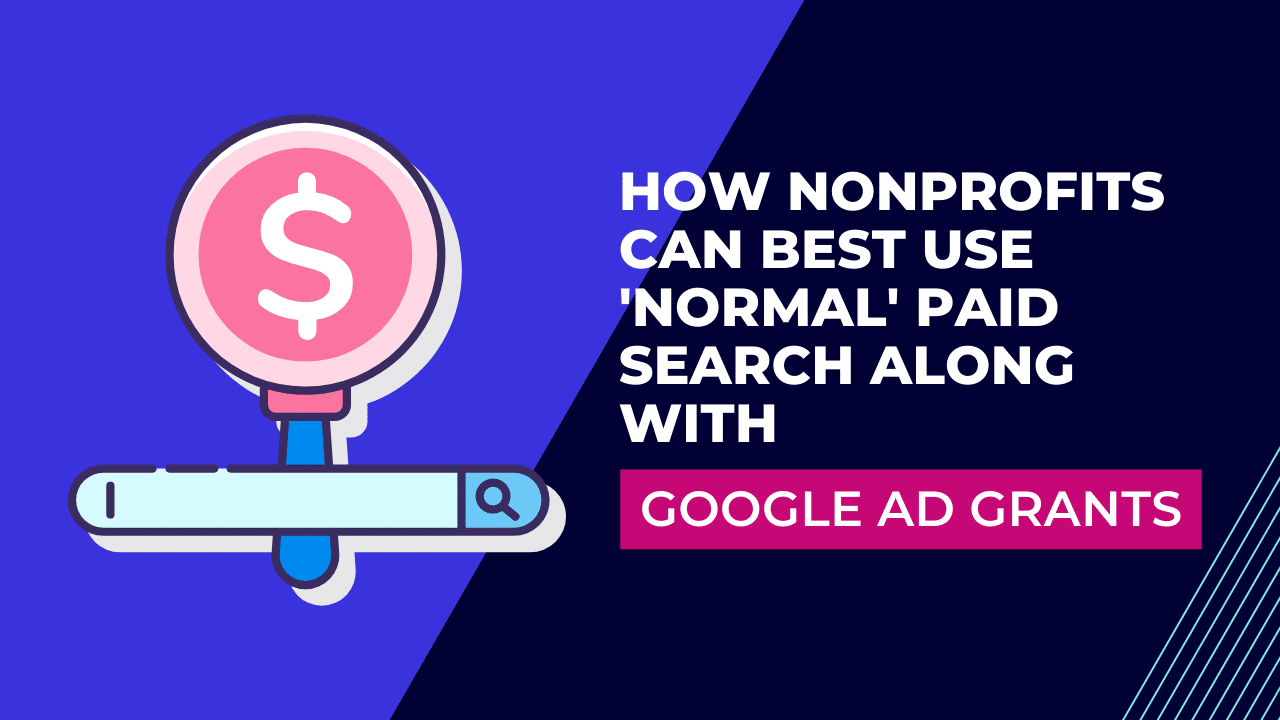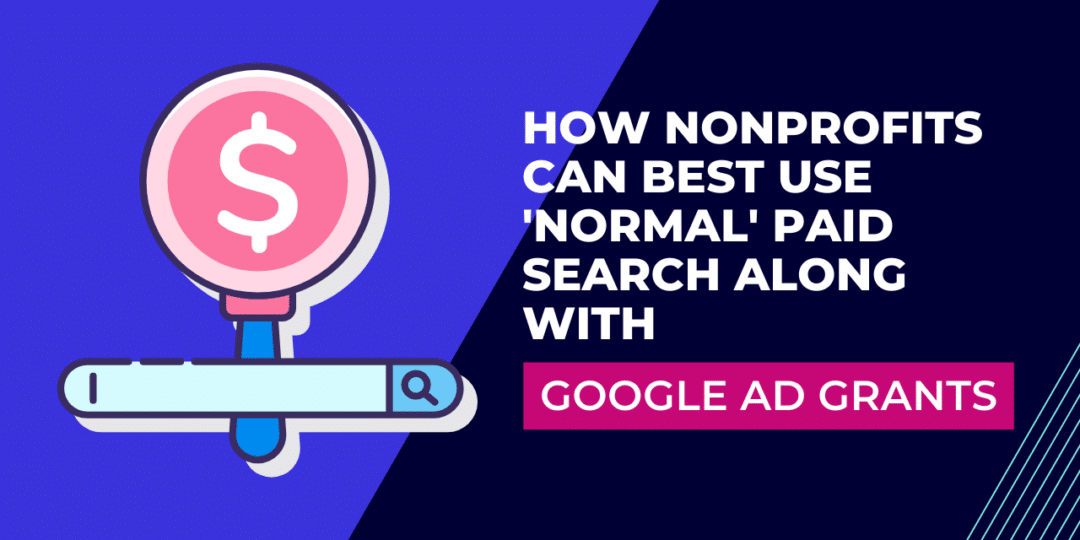If you’re running both a Google Ad Grant account and a ‘normal’ Paid Search account, you might be wondering:
- How do I choose the right keywords for my Grant and Paid accounts?
- Is there any risk of my accounts competing with each other?
- How can I prevent wasting my Paid budget on keywords that my Grant could cover?
Today, we’ll answer these questions and help you unlock the full potential of your Google Ad Grant and Paid Search campaigns.
But first, if you haven’t seen our video on maximising your Google Ad Grant in 2023, make sure to check it out because it lays out how to use your Google Ad Grant to drive conversions effectively.
Google Grant & Paid Keyword Strategy
A solid keyword strategy is crucial for both Grant and Paid accounts. However, many advertisers and agencies struggle to find an effective methodology, leading to confusion and suboptimal results.
Without a proper keyword strategy, issues may arise, such as:
- The Grant account not serving impressions, leading to no clicks, no conversions, and not utilising the full $10k in-kind budget
- No clear understanding of why these issues occur, leading to random, ineffective experiments like:
- Duplicating keywords in both Grant and Paid accounts, hoping the Grant ads will show once the Paid budget is depleted
- Day-parting, serving ads at specific times with Paid and outside those hours with Grant
- Widening the targeting geography for Grant, sacrificing visitor relevance for more visibility
None of these approaches are likely to work, so we need a better solution. The good news is that there’s a simple and effective strategy, which starts by understanding a fact about Google Ad Grants Ads:
In Search Results, Google Ad Grant Ads appear below Paid Ads, even when using the Maximise Conversions bid strategy.
This means that when a Grant ad targets a keyword and competes with multiple Paid advertisers, the Grant ad gets pushed down to the bottom of the page or even to page 2, where it’s practically invisible.
To plan our keyword strategy for Grant and Paid, we need to know the level of advertiser competition for our target keywords. This way, we can:
- Target low-competition keywords with our Grant
- Reserve our Paid budget for high-competition terms
Thankfully, we can easily determine the level of advertiser competition using the Google Keyword Planner tool.
In Google Ads, navigate to Keyword Planner, input your website, and get ideas. You will see:
- The keywords people search for
- The search volume of those keywords
- To view advertiser competition, go to Modify Columns and enable the Competition column
Now, you can plan your keyword strategy for Grant and Paid by:
- Targeting low-competition keywords with your Grant
- Targeting high-competition keywords with Paid
- Experimenting with medium-competition keywords to see what works best
With this new approach, you can optimise both your Grant and Paid campaigns, making the most of your budgets.
Now that we’ve covered the question ‘How do I choose the right keywords for my Grant and Paid accounts?’, let’s revisit the other two:
Is there any risk of my accounts competing with each other?
How can I prevent wasting my Paid budget on keywords that my Grant could cover?
With this methodology, you can:
- Minimise the risk of your accounts competing with each other
- Avoid using your Paid budget on keywords that your Grant could cover, as you know which keywords are in each account and why
And that’s it!
By following this simple methodology, you can confidently plan your keyword strategy for both your Google Ad Grant and Paid Search campaigns.

